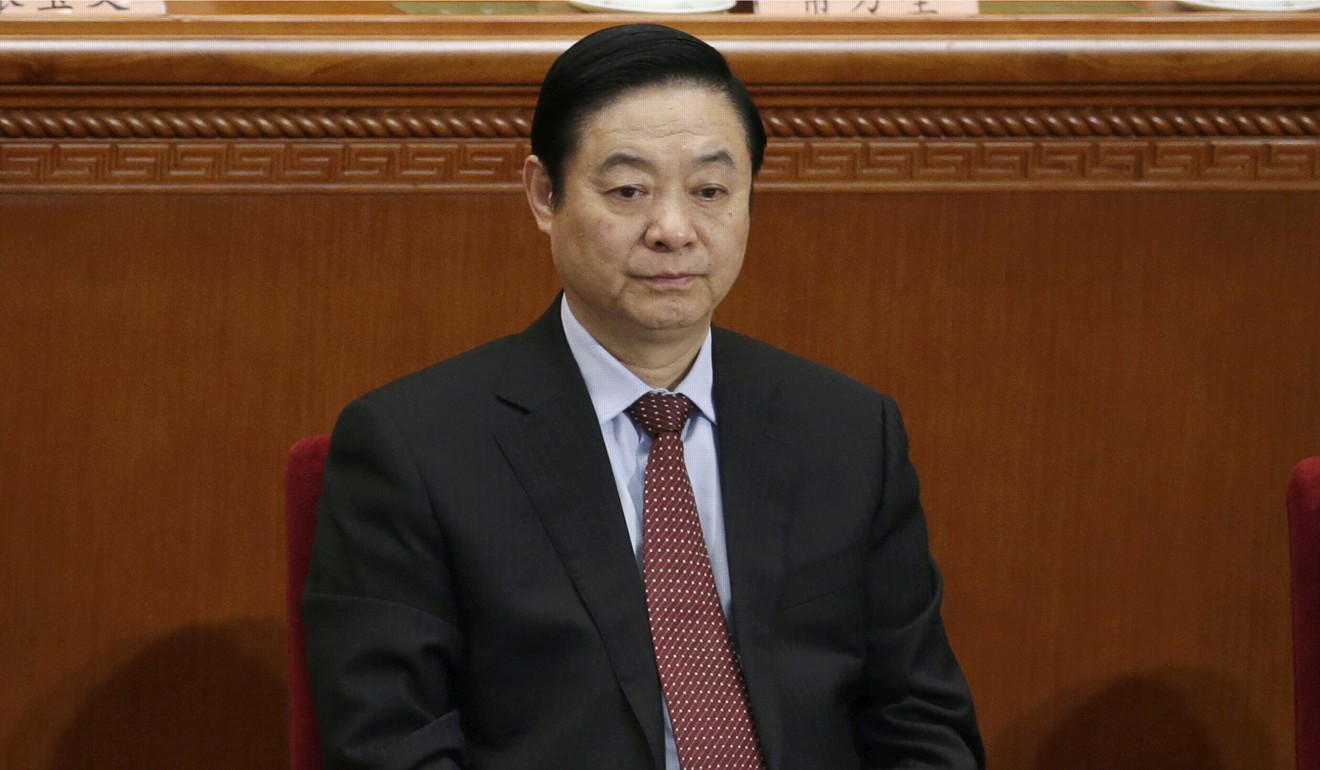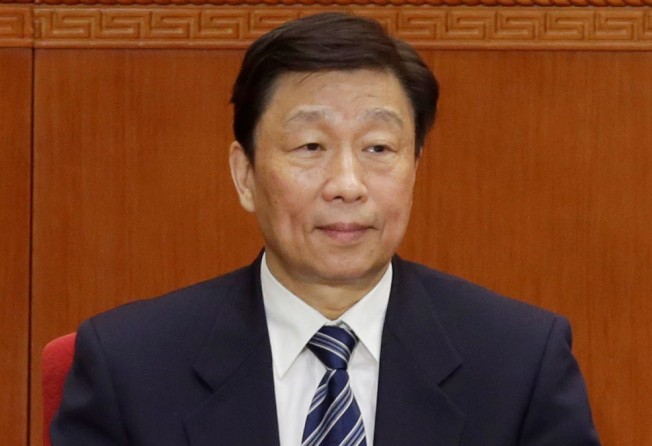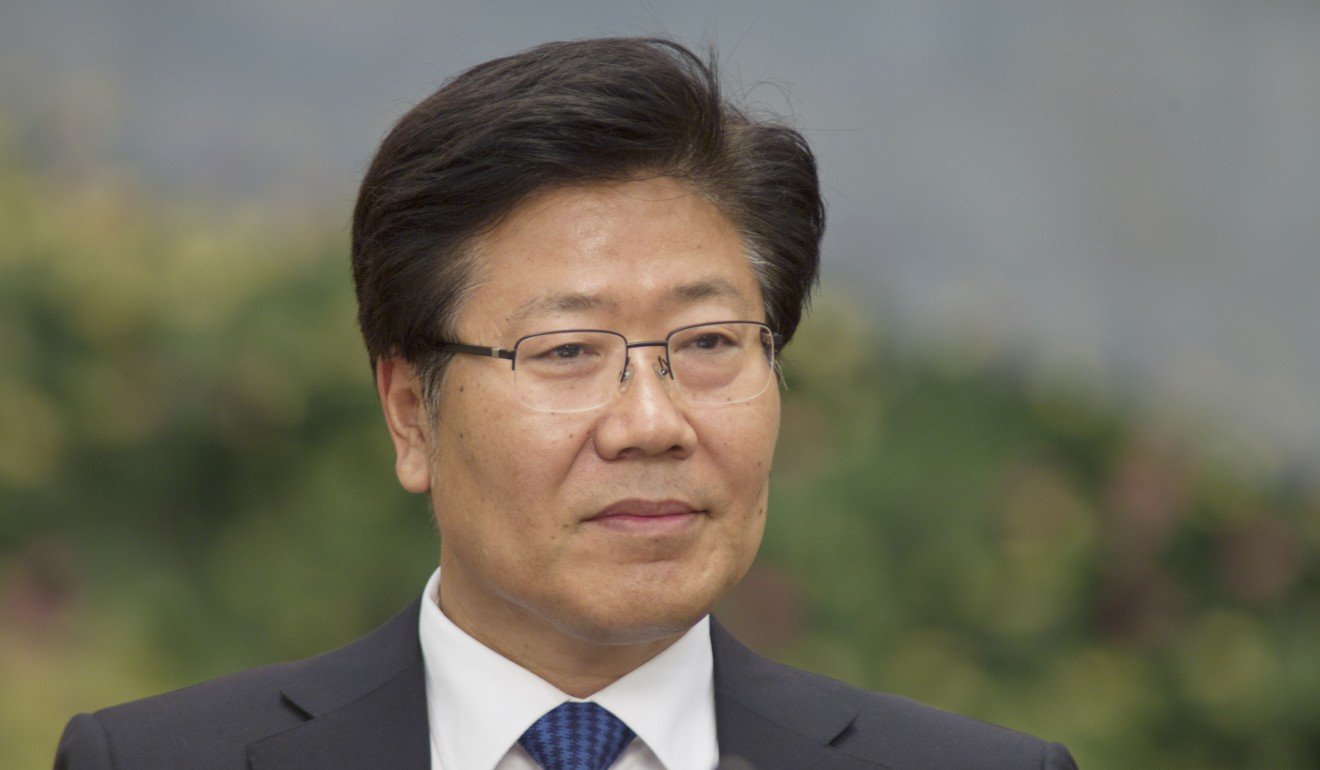
Not too old, but none too popular: Three senior politicians lose their seats at China’s top table
Vice-President Li Yuanchao, propaganda tsar Liu Qibao and ex-boss of Xinjiang Zhang Chunxian ousted from Politburo for no obvious, or official, reason

While much of the focus in Beijing on Wednesday was on the people who had been elevated to the highest ranks of China’s power structure, three members of the Communist Party’s Politburo failed to retain their seats despite there being no obvious, or at least officially announced, reason for them to step down.
Though aged in their sixties, Vice-President Li Yuanchao, 66, propaganda tsar Liu Qibao, 64, and the former boss of Xinjiang Zhang Chunxian, 64, are all under the unofficial retirement age of 68, so their departure from the 25-member decision making body is something of a mystery.
No official explanation has been given for their change of status.

Patricia Thornton, a professor of Chinese politics at Britain’s Oxford University, pointed to the fact that both Li and Liu were associated with the Communist Youth League, a power base of former President Hu Jintao that has been far less in favour under President Xi Jinping.
A number of previously rising stars from the faction have seen their political prospects dim in recent years.
Li also had close ties with reform-minded intellectuals, Thornton said.
“Li has been associated with calls for enhanced accountability and the rule of law,” she said. “But as we can see from the Resolution of the Party Congress, these issues have taken a back seat to Xi’s agenda – stated in language remarkably reminiscent of the Mao era – of strengthening the role of the party: ‘Party, government, military, people and education, east, west, south and north, the Party leads everything’.”
Despite the lack of an official explanation, Li’s absence from the Politburo was foretold on Tuesday at the closing of the five-yearly party congress, when he failed to gain a seat on the Central Committee. Both Liu and Zhang are still among that body’s 204 members.

While at least a possible explanation can be found for Li and Liu’s departure from the Politburo, the exclusion of Zhang is a harder to fathom, Thornton said.
“Although, given the enhanced focus on national security concerns, Xi may want to modulate central control over potentially restive Xinjiang in a different manner,” she said.
Zhang was party chief of Xinjiang for six years before being sidelined in August last year. He was succeeded by former Tibet boss Chen Quanguo, who strengthened security and surveillance in the Uygur heartland using the same hardline measures he adopted in neighbouring Tibet.
Jinghan Zeng, a senior lecturer in politics and international relations at the University of London, said that although there was no clear reason given, Zhang’s departure from the Politburo was “probably because the way he dealt with Xinjiang did not win recognition from the party leadership”.
Zhang has been perceived in some circles as being too soft on security issues, other experts on the region have said.
Whatever the reasons for the trio’s departure, what is certain is that it provided more room for the president’s men, who took at least 10 of the 15 Politburo seats filled by newcomers.
Several of them have been fast tracked for promotion under Xi, including Beijing party chief Cai Qi, who at the previous power shuffle in 2012 failed even to secure a position as an alternate member of the Central Committee.
Not everyone touted by the pundits as a “rising star” made the grade this time around, however.
Shanghai mayor Ying Yong, who worked under Xi in Zhejiang province, and Guangdong governor Ma Xingrui both missed out on seats on the Politburo. Their chances of becoming the party bosses of China’s financial capital and its southern economic powerhouse are now slim, as both positions are traditionally held by Politburo members due to their importance.
The outlook is significantly sunnier for Fujian party boss You Quan. The erstwhile top aide to former Premier Wen Jiabao was promoted to the party’s new Central Secretariat on Wednesday, suggesting he might soon be swapping the coastal province for a return to central government.